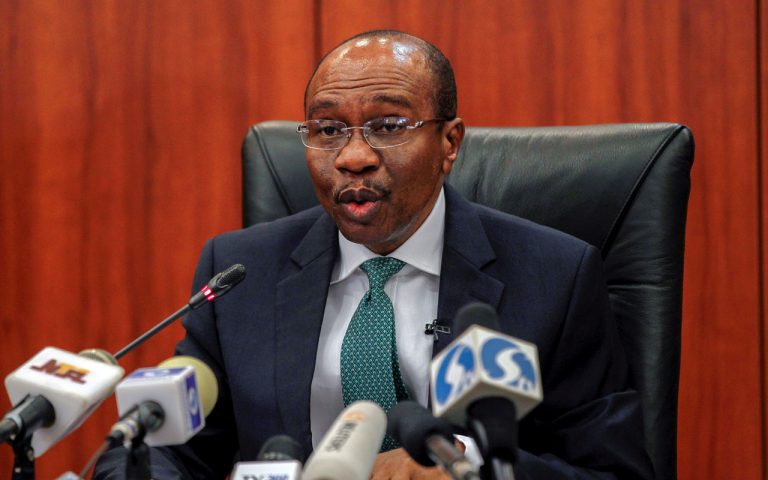In ancient mythology and folklore, silver is seen to have magical powers, used to conquer and combat monsters and used to ultimately overcome challenges faced by Knights and heroes of old.
In Nigeria, one of the monsters that have needed to be faced head on is a regime of high interest rates and its impeding effects on the growth of the country. Most recently, the Central Bank of Nigeria (CBN), led by Governor Godwin Emefiele, decided to take on the challenge of addressing this deterrent to domestic economic growth in Nigeria.
Historically in Nigeria, interest rates have always been high, and this can be directly attributed to the monetary system in vogue since 2009, which sought to use FGN bonds/T-bills and OMO bills as a means of attracting US$ into Nigeria to help stabilize the Naira.
Following this long unnecessary spell of extremely high interest rates in Nigeria from 2009 to 2019, it is gratifying to see that once again, it is possible to experience the rebirth of a sustainable credit economy in Nigeria; one that can support ordinary citizens as well as infrastructure growth.
Yes, many commercial bankers, pension fund managers, asset managers and traditional buy-side investors do not like these lower rates. Some use old archaic economic theories that question how inflation (at 11%) can be higher than the treasury risk free rate (at 3%). Even when you look at inflation against yields on fixed income securities, it would be inflationary expectations that an economist will analyze and not the spot inflation per se.
Why so? If I were to purchase a 10-year bond, with a coupon rate of 10 per cent and spot inflation is 11 per cent today, you could argue that you are getting a negative return today. However, this would only be for the first year as inflation the next year could be nine per cent or could even have dropped to seven per cent in year five and so on. Therefore, over the duration of the bond, my coupon rate begins to exceed future spot inflation rates as described above and therefore I’m in the money (bond price in premium).
If, however, I did not buy that bond and inflation falls as described above, the new bonds will have increasingly lower coupons and my profit as an investor becomes much less. Who also says that the short-term risk-free rate (T-Bills) must be above inflation? Where an investor wants above inflation returns, then such investor takes the appropriate risk/reward opportunities. That is what all other institutional investors, worldwide do.
Why the clamour for low interest rates? – The answer is simple. No economy can expect sustainable real growth when long term rates are above single digit. In order to attack inflation in Nigeria, we need to combat the high cost of the factors of production i.e. power, infrastructure (hard & soft), logistics, transportation, and a host of others. Long-term funding therefore becomes critical, most importantly the cost of financing at the risk-free rates that make our commercial banks, pension funds, etc. happy. Financing these critical components of economic development for the country become utterly impossible, leaving us in the rot we have become accustomed to. However, with Emefiele’s silver bullet, projects that will reduce the cost of production in Nigeria and enable us morph into a country that can produce competitively rather than continuously import, begins to actualize.
Read Also: Edo 2020: PDP Rep Member Declares Support For Obaseki
Why do we call it a silver bullet? – The lower interest rates you see today is a matter of basic economic supply & demand, induced by removing domestic investors from CBN’s Open Market Operations (OMO). Henceforth, domestic investors have been directed by the CBN to buy domestic securities issued by the Federal Republic of Nigeria, namely Treasury Bills and FGN Bonds. The result is that the demand for treasury bills and FGN bonds now far exceeds its supply and as such the yields have been adjusted to their normal economic equilibrium, dictated by investor appetite. OMO securities are now the preserve of a bilateral financing agreement between the CBN and foreign portfolio investors. In other words, Foreign Portfolio Investors (FPIs) will be willing to buy Nigerian OMO bills at a negotiated yield that does not distort the Nigerian domestic yield curve, fostering a credit market in the country and allowing Nigeria fund its infrastructure with long term economically viable Naira. I recently read an article from an international rating agency criticizing this move by the CBN, sighting illiquidity in the OMO securities due to a much smaller investor base. If a window was opened to foreign investors to sell to the CBN whenever necessary, then this totally makes the bills liquid and defeats that theory from the rating agency.
With regards to the fear of a Naira devaluation, again this is an inaccurate conclusion. To the extent that the negotiable rates between the CBN and FPIs remain attractive, the probability of a run on the Naira remains mute. This coupled with the Import & Export FX window and CBN’s timely interventions, we can look forward to having a relatively stable currency and low economically viable interest rates that will help grow the economy into a stronger future.
So, should we like Emefiele’s silver bullet? – This answer is a resounding yes.
Nigerians lets support this crucial initiative from the CBN for a brighter tomorrow and let’s help ourselves breakout from our history of round tripping banking.
Congratulations to Governor Godwin Emefiele and his team at the CBN for a job well done.
THE SUN, NIGERIA










